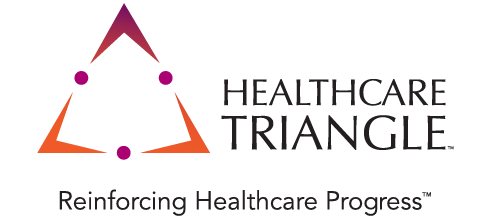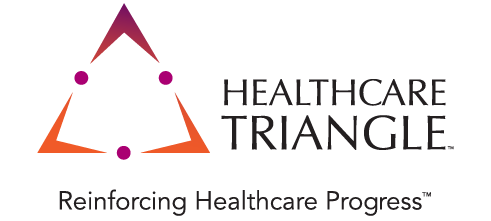Why Cloud Is Ideal for Healthcare Backup and Disaster Recovery
Mike Preston, Director, Client Partner
Feb 1, 2023
As healthcare continues to digitize, it has enabled greater access and higher quality of care for patients. However, due to the abundance of personally identifiable information (PII), it has made the healthcare sector vulnerable to cyberattacks and ransomware attacks. Traditional on-premises backup and disaster recovery solutions have become outdated, leaving many healthcare leaders wondering what the best solution is for protecting their data. Fortunately, cloud-based backup and disaster recovery solutions offer a range of benefits that make them an ideal choice for organizations of any size.
However, many organizations are still hesitant to make the move. This is understandable, as data is often our most critical asset. But there are plenty of reasons to feel confident about moving backup and DR to the cloud – especially if you partner with a reputable provider.
In this blog post, we’ll share the top reasons why healthcare leaders should consider migrating their backup and DR solutions to the cloud. We’ll explore everything from cost savings and scalability to improved security and compliance. By the end, you’ll see why migrating to the cloud is one of the best decisions you can make for your organization’s data management strategy.
Cloud-based solutions are typically less expensive to implement and maintain than on-premises solutions.
Moving backup and disaster recovery to the cloud is much more cost-effective than traditional on-premises hardware, as they require no upfront investments in physical infrastructure. Additionally, you won’t need to spend funds on expensive maintenance contracts or additional personnel to manage your backups. Additionally, cloud providers often offer pay-as-you-go options that allow you to only pay for the services you use.
The cloud offers healthcare organizations the ability to quickly spin up new resources in the event of a disaster, which can help minimize downtime.
The cloud provides tools that can help healthcare organizations quickly spin up new resources in the event of an emergency. This gives users the ability to swiftly re-establish service and minimize downtime – which is a crucial factor for successful business continuity planning. By utilizing these cloud-hosted capabilities, organizations can ensure stable operations without significantly increasing costs or requiring large teams of personnel.
Cloud-based backup and DR solutions offer increased security and compliance features compared to on-premises solutions.
With GDPR, HIPAA, and other compliance regulations coming into effect worldwide, the need for reliable security measures have increased significantly. On-premises solutions suffer from many vulnerabilities such as integration complexity with other existing infrastructure and hardware issues that can create potential for data loss or security breaches. Cloud vendors provide greater control over the design of secure networks, stronger encryption capabilities, and effective firewalls that protect patient data without compromising business continuity planning.
The cloud enables organizations to take advantage of new technologies, such as AI and ML, for their recovery needs.
Cloud solutions can help streamline data management processes and reduce manual labor, freeing up time and resources that can be used for other initiatives. Cloud providers often offer automated features such as continuous backups and real-time monitoring, eliminating the need for manual intervention.
Cloud providers offer a variety of managed services that can help organizations simplify the management of their backup and disaster recovery solutions.
Cloud providers have revolutionized disaster recovery and backup processes. Not only do they provide a hassle-free way to store, manage and scale data, but their managed services solutions can take the strain off organizations that are short on resources. By providing extensive support for both cloud and non-cloud-based solutions, healthcare organizations are given complete control over how their data is stored, managed, and accessed. This has significantly simplified the process of keeping critical information safe in the event of a disaster. Furthermore, being able to leverage cloud-provided resources without having to make any prior investments allows organizations to focus more time and resources on other critical aspects of their operation.
Cloud-based backup and disaster recovery solutions enhance collaboration.
Cloud solutions are designed with collaboration tools built-in, making it easy for healthcare organizations to securely share critical data with patients and other stakeholders. Additionally, cloud storage makes it simpler for remote teams to access documents, photos, and videos without putting sensitive information at risk.
Geographically distributed backups for enhanced data protection.
Data protection is a top priority for any healthcare organization. Cloud solutions make it easy to store backups across multiple geographical locations, ensuring that critical information remains safe in the event of a disaster. This helps organizations meet compliance requirements while providing enhanced security and reliability. With the potential capabilities offered by cloud solutions, it’s no surprise that so many healthcare CIOs are making the switch.
Choosing the Ideal Cloud Backup and Disaster Recovery Solution
Ultimately, migrating to the cloud could be a great move for your organization – if you partner with a cloud solution provider like Healthcare Triangle. By leveraging HCTI’s cloud backup and disaster recovery solutions, healthcare organizations can continue to operate and provide patient care even during a ransomware attack or other events that may disrupt on-premises systems or their primary data centers – without breaching HIPAA standards.
Now it’s time to assess your situation and improve your readiness. Get in touch with us today!


